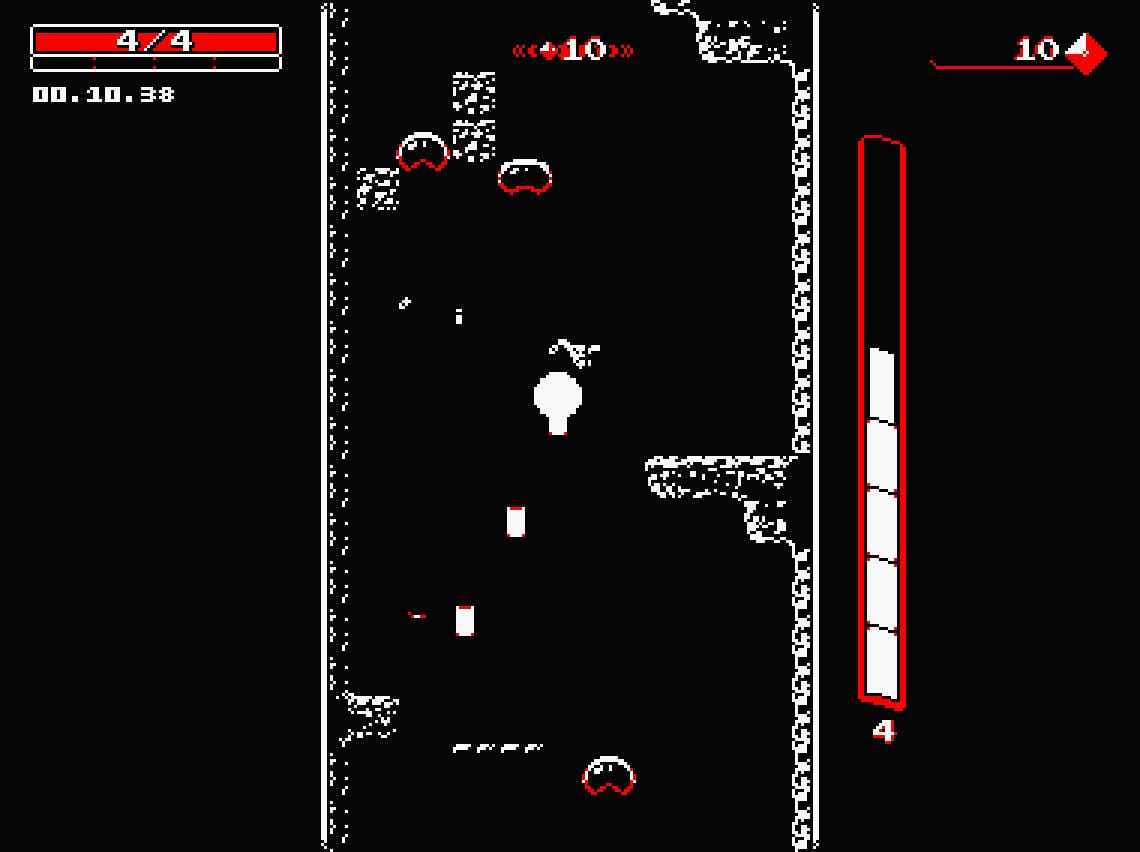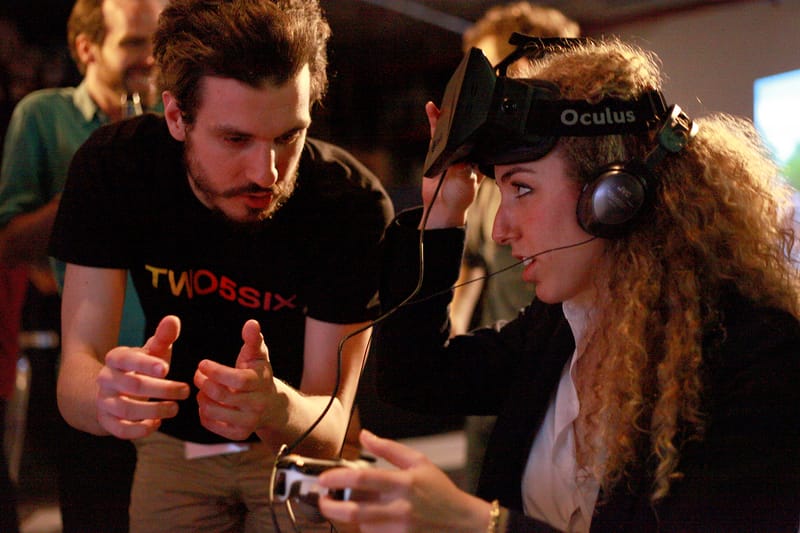Downwell might be a perfect game title. Not only is it short and pithy, but it serves as a perfect summation for what developer Ojiro Fumoto has created.
It’s a game in which a young boy is continuously falling down a well, avoiding enemies and purchasing upgrades along the way. But it’s not a hopeless endeavor. Armed with Gunboots firing from his feet, the boy is able to defend himself during his descent. The result is the type of sweat-inducing adventure that threatens to do water damage to your smartphone or controller, a game whose red and white character models and pixelated bursts pop boldly against a solid black background. Fumoto claims the idea for Downwell was borne from his obsession with the game Spelunky.
“I super love Spelunky, and there was a period where I couldn’t stop thinking about it wherever I went,” he says, recalling a particular moment when he pulled his phone out in a café. “I thought, ‘Whoa, okay … Wouldn’t it be awesome if there was a game like Spelunky playable on phones?’”
sweat-inducing adventure that threatens to do water damage to your smartphone
Known for its difficulty and randomized environments, Derek Yu’s Spelunky, from 2008, tasks players with exploring caves while fighting enemies and purchasing upgrades with the treasures they’ve found.
In its semi-completed state, Downwell is different from Spelunky. Still, Fumoto humbly posits the core ideas still remain inspired by the acclaimed game.
“[Downwell] ended up being a lot different from Spelunky, but I think I achieved my initial goal in that Downwell is a 2D platformer with (hopefully) tight controls and (hopefully) replay value,” he says.
It’s the so-called “Gunboots” that makes Downwell unique. Originally not included in an early prototype, these wacky accessories were created in an effort to simplify the control scheme of a touch screen mobile device.

“I intended to keep the number of buttons to [a] minimum, because I thought having more buttons would make the control a bit clumsy for mobile,” Fumoto says.
Working within this limitation, Fumoto started experimenting with ideas and eventually settled on the Gunboots, a contraption that fires a downward shot from the protagonist’s boots whenever the player hits jump.
Their unique application grabs attention. During development, Fumoto began sharing animated GIFs of Downwell on Twitter, showcasing its frantic personality to internet followers.
This eventually attracted the interest of Devolver Digital, the small publisher known for its stable of critically-acclaimed indie games like The Talos Principle and Hotline Miami.
Having the support of a publisher is no small victory for a developer. Especially for Fumoto, a relatively new member of the burgeoning Japanese indie development community.
the Japanese game industry has been slower to adopt the independent game movement
In the West, independent developers like Jonathon Blow and Mojang have become international superstars. But the Japanese game industry has been slower to adopt the independent game movement. Apart from big names like Castlevania’s Koji Igarashi and Mega Man’s Keiji Inafune, few Japanese developers have seen international success as independent game makers.
“There aren’t many full-time Japanese independent [developers] that I know of,” he says, cautious to speak too broadly based on his limited experience. “Most indie devs are working a separate job while they pursue this indie stuff in their spare time.”
He points to Nigoro and Studio Pixel as two exceptions, continuing to share his optimism about the future of Japanese indie development. Some things will have to change, he says, but that doesn’t mean there is no future for it in Japan.
“Indie games in general aren’t very well known or played among gamers in Japan, so younger people here aspiring to make games in the future tend to not even know that pursuing independent development for a living can be a thing. If indie games become more popular and widely known here, I think the scene really could start growing.”
With the release of Downwell and its subsequent acclaim, he’s continuing to forge through new territory in a relatively young market, unsure of what the future holds for Japan’s independent scene but persevering nonetheless.
Much like falling down a well.





